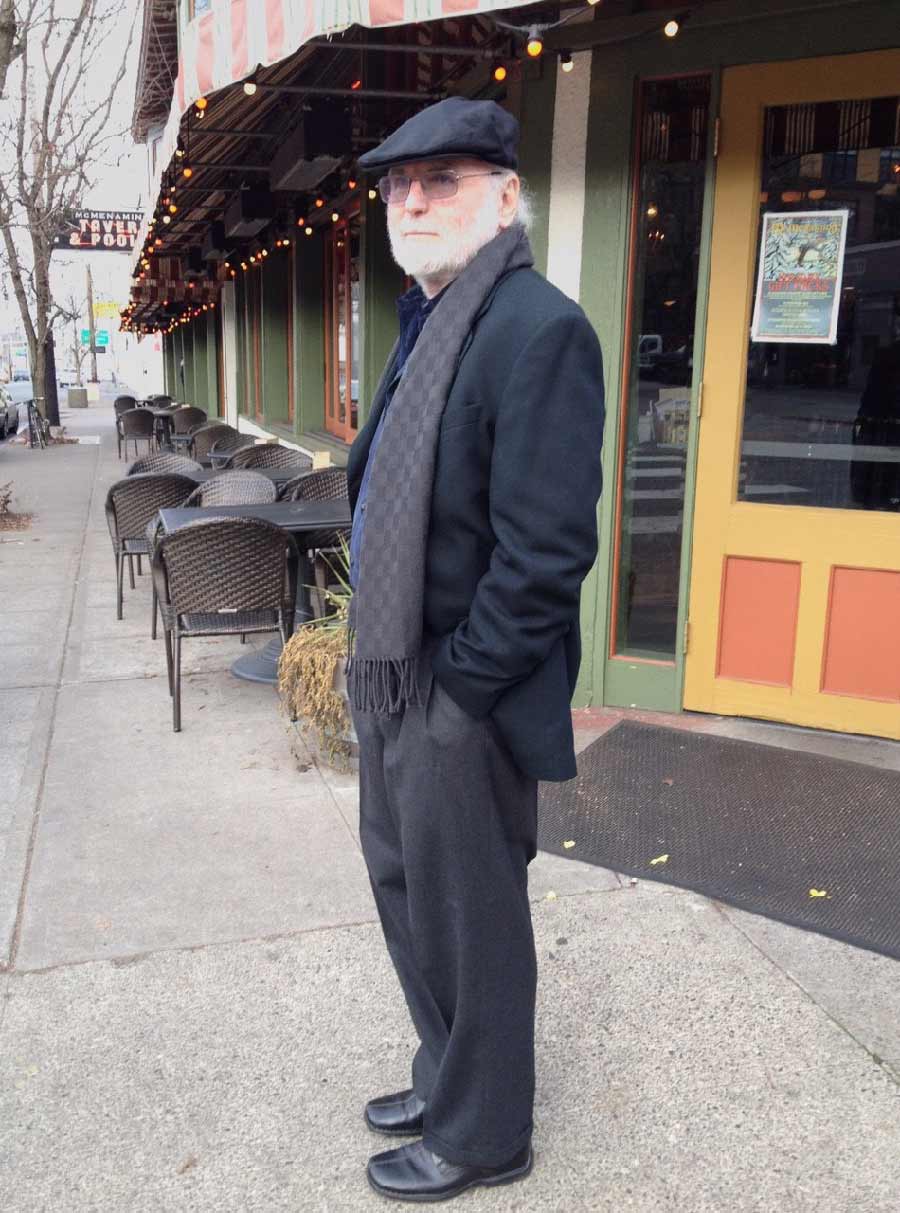Former Provost Calls for Critical Thinking about Professional Protocols and Privilege
Published Date
By:
- Cynthia Dillon
Share This:
Article Content

Former UC San Diego student, department chair and provost of Revelle College Don Wayne. Photo courtesy of Don Wayne
For 38 years Don Wayne applied his time and talent to the University of California San Diego in various capacities, from graduate student in literature to provost of Revelle College. Wayne, now professor emeritus in the Department of Literature, returns to campus as the department’s featured Alumni Lecture speaker. His thought-provoking talk, titled “Historical and Formal Aspects of Professional Culture and the [Sometime] Failures of Liberal Elites: The Case of the Humanities,” takes place Thursday, April 13, 4 p.m., in the Literature Building, Room 155 (de Certeau). His presentation reflects the challenges to existing paradigms and the campus intellectualism that he recalls during his prolific career.
“Don received his Ph.D. in literature at UC San Diego and had a distinguished career on campus as a professor and an administrator. He is a good role model for our grads,” said Department of Literature Chair Yingjin Zhang. “I hope people will learn from Don’s historical perspective on humanities and take a proactive stance on challenges ahead.”
According to Wayne, his talk in part will cover how his research relates to the current climate around the value of the liberal arts.
“We need to engage in some self-examination, and we need to do this not just as personal, individual acts of moral introspection and self-criticism, but also as collective acts within our respective social contexts, which include our professional contexts,” said Wayne.
According to Wayne, one problem with professionalism today is the emphasis on specialized knowledge to the exclusion of a broader engagement with learning. Another problem is how the various professions and their respective cultures socialize prospective members through graduate and professional schools.
“Such socialization produces a silo mentality among members of a given professional elite, a kind of mentality that has been criticized recently,” said Wayne, citing New York Times columnist Nicholas Kristof, who has been critical of academic professionals. “This is too complex an issue to address in a few words, but I fear that in fields that have traditionally been associated with the value to society of critical thought, professionalization within corporate institutional structures and careerist motives within those structures have limited our capacity for critical thinking, writing and teaching,” stated Wayne.
Drawing from literary criticism, linguistics and cognitive science, as well as cultural studies and theory, Wayne’s discussion will include the key categories of ideology, contradiction and complicity. He argues that liberal elites too often limit the category of ideology to conscious political and moral deliberation and choices, while consistently neglecting the unconscious factors—ways we justify our titles, the organizations we serve, their hierarchies, and the power derived from them—that govern ideas and practices in our respective professional roles. Wayne encourages intellectuals and educators to go beyond taking a professional stance and resistance that “speaks truth to power” by questioning institutional protocols and privilege.
“One example I refer to in my talk is that of James Baldwin, the black and gay writer and civil rights activist in whom there is a current revival of public interest,” Wayne said. “Baldwin had a way of writing as someone both inside and outside the dominant institutions of American society, including the professional institutions of literary and journalistic writing of which he was an accepted part. He managed to exemplify the best aspects of those institutions and to criticize their worst aspects—often in the same sentence!”
A similar spirit of criticism, innovation, creativity and interdisciplinarity is what Wayne remembers most about his three-plus decades on campus.
“My strongest campus memory is the spirit of collaboration among faculty, graduate students, and undergraduates in the classroom, in laboratories, and in activities such as the various gardening projects on campus,” he shared, adding that his family was among those who planned and created the first garden project in 1969.
Wayne understands that today’s parents and students may be more motivated by the pragmatic concern for high-paying jobs than by other educational values; however, he considers a trending decline in the number of humanities majors a cause for national cultural and social concern.
“The decline in humanities enrollments, as some colleges and universities reduce liberal arts requirements, is leading to a loss of capacity for critical thinking among college graduates,” stated Wayne. “Some of the best professional schools and some insightful business leaders recognize this, and they are especially interested in recruiting people with the analytic, interpretive and writing skills that are taught in good humanities programs.”
According to rankings by College Choice, the UC San Diego arts and humanities graduate programs rank among the highest in the nation with the Department of Literature listed at #6 for its creative writing MFA program. U.S. News & World Report also lists the university’s humanities programs among the top in the nation. The Division of Arts and Humanities, itself, is ranked #23 according to U.S. News & World Report’s 2017 Best Global Universities.
Share This:
You May Also Like
Stay in the Know
Keep up with all the latest from UC San Diego. Subscribe to the newsletter today.



